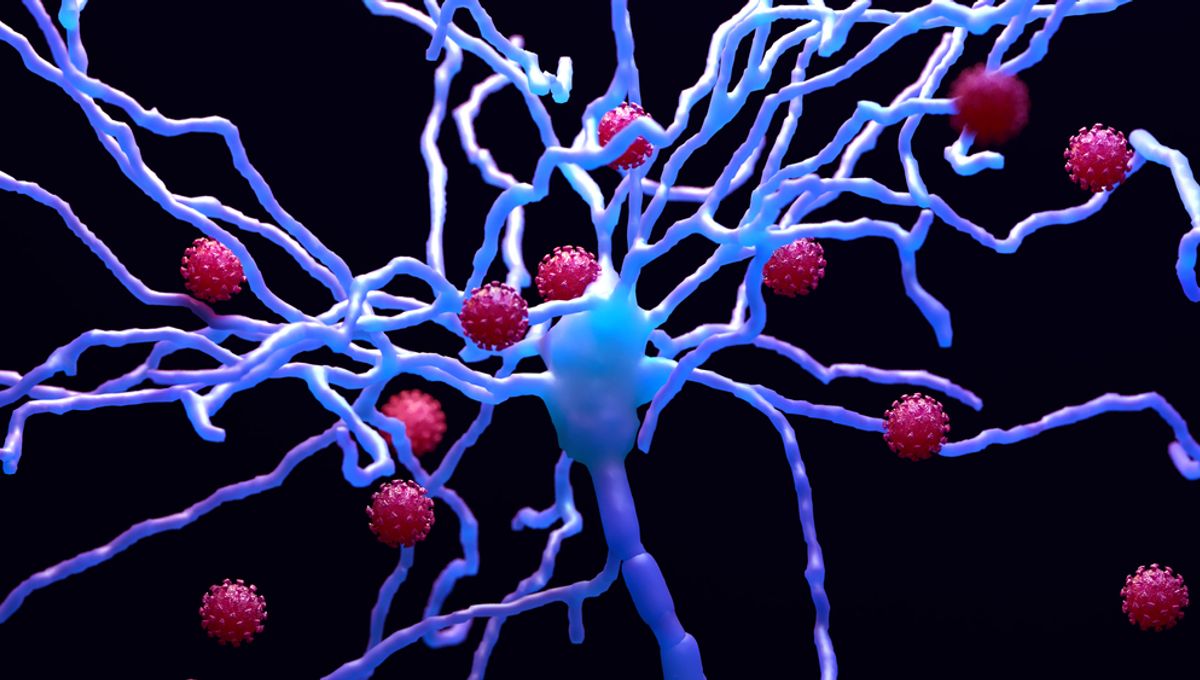
New research showing SARS-CoV-2 destroys connections between nerve cells in a mini-brain organoid may be part of the puzzle of why COVID-19 infections can have such a profound impact on the brain. Some of the observations bared some similarity to those seen during Parkinson’s and Alzheimer’s disease development.
Scientists at Karolinska Institutet in Sweden created human three-dimensional mini-brains in a dish and infected these models with SARS-CoV-2. Their findings showed that the virus triggered an increase in “early cell-death related events.”
The mini-brains used in this study featured brain cells called microglia. These can help to protect the brain by engulfing and clearing up unwanted synapses, the junctions between neurons that are used to pass signals to their neighbors. However, this study suggests the microglia were excessively eliminated synapses when battling SARS-CoV-2 infection, which actually damages the brain,
One of the most widely reported effects of COVID-19 is the infamous “brain fog”, involving confusion, poor concentration, memory issues, and a lack of focus. Some studies have also found that over a third of COVID-19 patients were diagnosed with a neurological or psychiatric condition within 6 months of infection.
Although it’s clear that COVID-19 can damage the brain significantly, there is still some debate about whether the virus directly infects the brain. Nevertheless, the researchers from this latest project say their findings could help to explain why COVID-19 infections are resulting in these unusual symptoms that affect cognition and brain function.
“Interestingly, our results to a large extent mimic what has recently been observed in mouse models infected with other neuroinvasive RNA viruses such as the West Nile virus. These viruses are also linked to residual cognitive deficits after the infection, and a persisting activation of microglia leading to an excessive engulfment of synapses, which has been suggested to drive these symptoms,” Samudyata Samudyata, first study author and postdoctoral fellow in Sellgren lab at the Department of Physiology and Pharmacology at Karolinska Institutet, said in a statement.
The researchers note that excessive engulfment of synapses by the microglia is something that’s been linked to both neurodevelopmental disorders and neurodegenerative disorders including Alzheimer’s disease.
While it’s too soon to say how COVID-19 may become implicated in people developing neurodegenerative diseases in the future, it’s a concern that’s been raised before.
“Microglia displayed a distinct gene signature largely characterized by an upregulation of interferon-responsive genes, and included pathways previously linked to neurodegenerative disorders such as Parkinson’s and Alzheimer’s disease. This signature was also observed at a later time-point when the virus load was minimal,” added Susmita Malwade, co-author of the study and doctoral student in Sellgren lab at the Department of Physiology and Pharmacology at Karolinska Institutet.
The new study was published in the Nature journal Molecular Psychiatry.
Source Link: Scientists Infect Mini-Brains With COVID-19, Revealing Worrying Damage